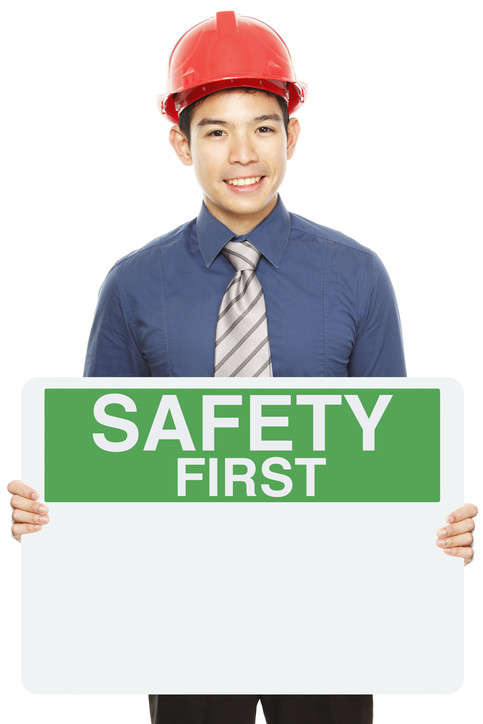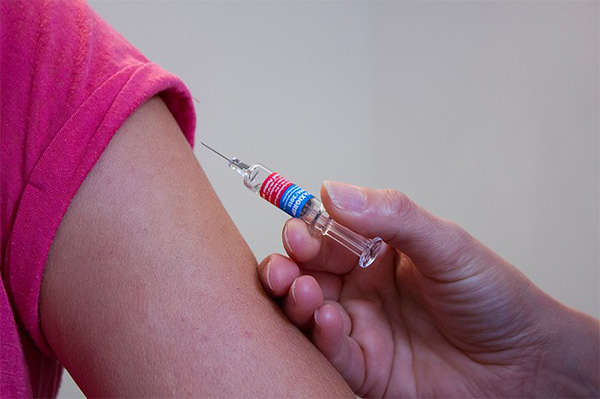Very friendly and super helpful with any questions I had. Very clean and calm atmosphere, all the staff were kind.
Read More
OSHA Hepatitis B Vaccine Requirements
Posted: Oct 19th, 2016 at 12:00AM

OSHA requires any employee covered under their guidelines to have a hepatitis B vaccination, and it's easy to see why when you know a little bit about the pathogen. The complications which can result from exposure to this dangerous bloodborne pathogen can be life-altering and even lethal, but vaccination can minimize or eliminate the risk of acquiring it through a simple process.
A Little Bit About Hepatitis B
Hepatitis B is a syndrome which is brought on by exposure to the HBV virus. In most places in the world, infants are vaccinated against the disease shortly after birth, although some booster shots are required to maintain effectiveness over a period of six months.
The disease itself can present in both acute and chronic forms. In the case of children under the age of five years, there is a 90% chance of it becoming a chronic infection, while in older children and adults, the risk of chronic infection is much lower at about 10%.
An acute infection of HBV can be life-threatening, especially in infants and those who already have some form of liver impairment. Otherwise, the disease will present itself through general ill-health including nausea, fever, dark urine, and other troublesome symptoms. In many cases, this will progress all the way to jaundice.
In most cases, the acute infection will resolve itself after a few weeks to a few months and may leave the sufferer with a chronic infection of the virus.
The chronic infection is often asymptomatic for many years, but it can lead to huge complications after some time including cirrhosis of the liver. 10% to 25% of those infected with the chronic variation of the disease will die of the hepatic complications resulting from the disease.
The bad news is that hepatitis B is easily transmittable through almost all bodily fluids, although the most common vector for the disease is blood. Sexual contact can also transmit the virus quite readily, and HBV is fifty to a hundred times more likely to transmit than HIV placing it in a high-risk category of infectiveness.
The good news is that hepatitis B is easily preventable with an easily acquired vaccine, which has helped to slow the spread of the disease considerably since it’s mandated use has come into common acceptance.
OSHA Requirements
The Occupational Safety and Hazard Administration (OSHA) has mandated that all workers who have a reasonable risk of exposure to blood or other bodily fluids during the course of their work are required to have a hepatitis B vaccination administered.
This is especially important in the case of those who routinely come into contact with syringes or other sharp objects whose primary purpose is to draw blood due, to the extremely infectious nature of the HBV virus.
 The vaccine itself must be offered to employees at no cost and during a reasonable time by the employer in order for them to be in compliance with the guidelines. The Centers for Disease Control and Prevention (CDC) is in charge of determining the normal course of vaccination guidelines, and all procedures must be in line with their rules.
The vaccine itself must be offered to employees at no cost and during a reasonable time by the employer in order for them to be in compliance with the guidelines. The Centers for Disease Control and Prevention (CDC) is in charge of determining the normal course of vaccination guidelines, and all procedures must be in line with their rules.
For the employee who has to receive the vaccination, this means that they will receive a course of three shots over a six-month period. Regulations maintain that the individual must then be tested for antibodies if the test turns up negative then another course of the vaccine is given. Non-responders must then be medically evaluated if no antibodies are found to be present in their system.
Any worker who declines the vaccine must sign a form that declares they voluntarily did not receive it. This declination form is primarily to protect their employer, but if the person who opted out later decides to receive the vaccination then the employer is still provided to provide it with the above guidelines.
The Hepatitis B Vaccine
The hepatitis B vaccine is highly effective and bears almost no risk to the person it is administered to. In many cases it is given to infants almost as soon as they are born, one of the primary risk factors associated with the virus is that it can be transmitted to newborns by their mother.
Newborns are especially vulnerable to the virus, and in many cases, lifelong complications can result from their exposure to the disease in the birthing process. If the mother is infected with a chronic strain of HBV the doctors should know, there are methods available to minimize the risk.
Infants nearly always receive a course while under the age of a year, but the reinforcement of the vaccination process before exposure to the pathogen itself is still required for those who are at a higher risk of exposure.
There aren't many major risks involved with receiving the vaccine, but fevers under 100ºF aren't unheard of and some people will experience a prolonged soreness from the administration. There are no major complications unique to the administration of the Hepatitis B vaccine in those who have no history of an allergic reaction to vaccines.
The vaccine itself is derived from parts of the virus, and there's no risk of being infected due to the vaccination since the included "parts" are non-infectious.
Overall, the hepatitis B vaccine is one of the safest known preventative measures and there's virtually no risk of complications emerging after the vaccination.
OSHA's guidelines for those who work with blood are pretty much common sense and the rules are very transparent. If you work with needles or at risk of exposure to bloodborne pathogens in the course of your daily work your employer must enable you to receive the vaccine at no cost to yourself.
Hepatitis B infections are easily preventable with some simple measures that should cause no complications in the majority of people. There's no need to second-guess its administration, and if given the opportunity the employee should definitely take it. The added protection might become invaluable, if only for peace of mind on the job.

I came to E7 health for a physical exam for employment. Staff was very professional, And I was in and out in thirty minutes
Read More
Staff was extremely friendly, I was able to walk in without an appointment.
Read More
Very friendly, informative, and well versed. Felt well taken care of by the doctor and all the staff. Fast, friendly, considerate, all staff met.
Read More
I was here for an employment physical. They are amazing! I was in and out in less than 10 mins.
Read More
J was super helpful. Very quick and easy.
Read More
Rachel was amazing and I was in and out so quick ! Ready to start my new job ! Thanks 🥰
Read More
J was awesome at talking me through my first time getting blood taken. The doctor that also did my physical was quick and very thorough when letting me know the next steps for getting the test results back :)
Read More
















